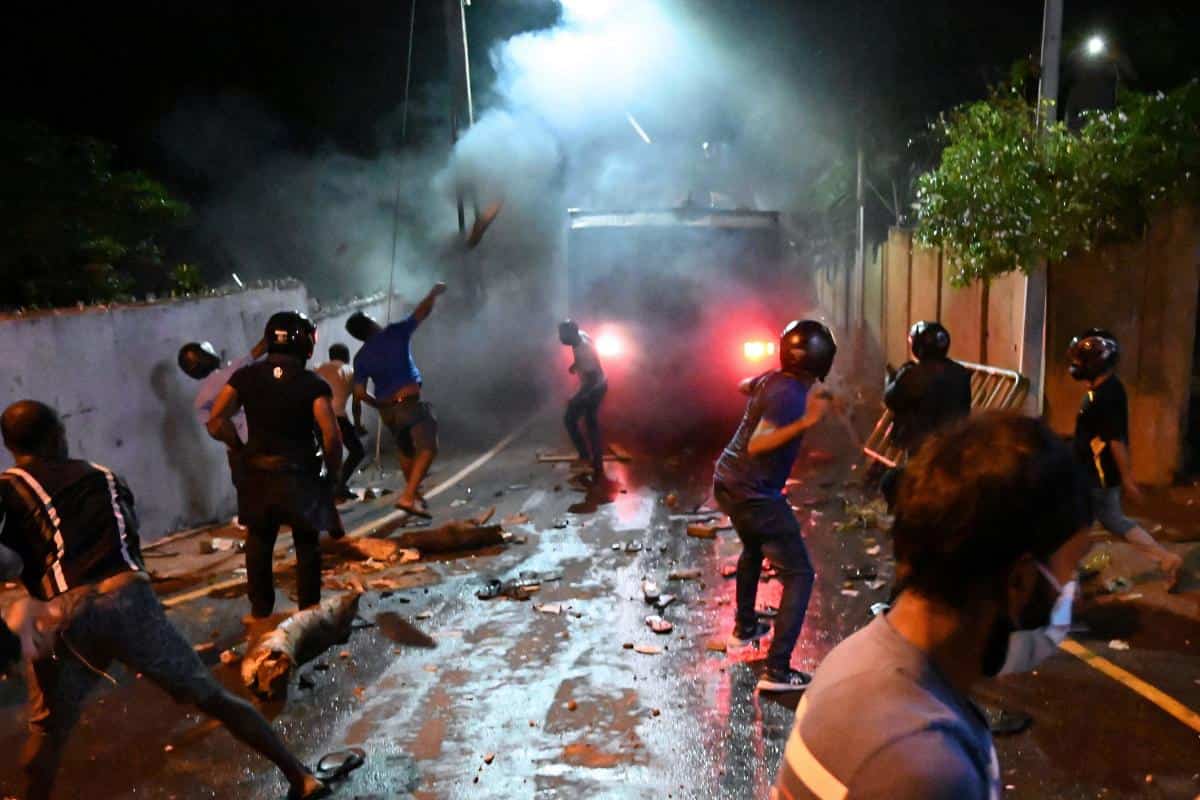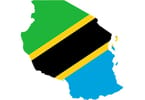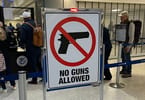Sri Lanka’s President Gotabaya Rajapaksa has declared a State of Emergency in the country on Friday, invoking the tough laws that allow the Sri Lankan military and security forces to detain and jail anti-government suspects for long periods without trial.
The State of Emergency declaration came a day after hundreds of protesters attempted to storm his residence, while mass protests calling for his resignation spread across Sri Lanka over an unprecedented economic crisis in the South Asian country.
Thursday night’s unrest outside the president’s private home saw hundreds of people demand he step down.
Police fired tear gas and used water cannons against the protesters.
The crowd turned violent, setting ablaze two military buses, a police jeep, two patrol motorcycles and a three-wheeler. They also threw bricks at officers.
At least two protesters were wounded. Police said 53 protesters were arrested, but local media organizations said five news photographers were also held and tortured at a local police station.
The country of 22 million is facing severe shortages of essentials, sharp price rises and crippling power cuts in its most painful downturn since independence from Britain in 1948.
According to Rajapaksa’s proclamation, the emergency was declared for “protection of public order and the maintenance of supplies and services essential to the life of the community.”
Sri Lankan police reimposed a nighttime curfew on Friday in the Western Province, which includes the capital Colombo, expanding the no-go zone from the previous night.
Earlier in the evening, dozens of rights activists carried handwritten placards and oil lamps in the capital while demonstrating at a busy intersection.
In the highland town of Nuwara Eliya, activists blocked the opening of a flower exhibition by Prime Minister Mahinda Rajapaksa’s wife, Shiranthi, police said.
The southern towns of Galle, Matara and Moratuwa also saw anti-government protests, and similar demonstrations were reported in the northern and central regions. All held up traffic on main roads.
According to Sri Lankan Transport Minister Dilum Amunugama, “terrorists” were behind the unrest.
Rajapaksa’s office declared today that the protesters wanted to create an “Arab Spring” – a reference to anti-government protests in response to corruption and economic stagnation that gripped the Middle East more than 10 years ago.
One of Sri Lankan president’s brothers serves as prime minister while his youngest, brother is finance minister. His eldest brother and nephew also hold cabinet positions.
Sri Lanka’s trouble has been compounded by the COVID-19 pandemic, which torpedoed tourism and remittances.
Many economists also say the crisis has been exacerbated by government mismanagement and years of accumulated borrowing.
According to the latest official data released on Friday, inflation in Colombo hit 18.7 percent in March, the sixth consecutive monthly record. Food prices soared a record 30.1 percent.
Diesel shortages have sparked outrage across Sri Lanka in recent days, causing protests at empty pumps.
The state electricity monopoly said it was enforcing a daily 13-hour power cut from Thursday – the longest ever – because it did not have diesel for generators.
Several state-run hospitals, facing shortages of life-saving medicines, have stopped routine surgeries.
WHAT TO TAKE AWAY FROM THIS ARTICLE:
- Sri Lanka’s President Gotabaya Rajapaksa has declared a State of Emergency in the country on Friday, invoking the tough laws that allow the Sri Lankan military and security forces to detain and jail anti-government suspects for long periods without trial.
- According to Rajapaksa’s proclamation, the emergency was declared for “protection of public order and the maintenance of supplies and services essential to the life of the community.
- The State of Emergency declaration came a day after hundreds of protesters attempted to storm his residence, while mass protests calling for his resignation spread across Sri Lanka over an unprecedented economic crisis in the South Asian country.






















